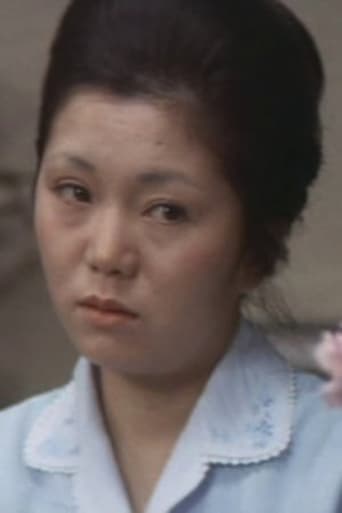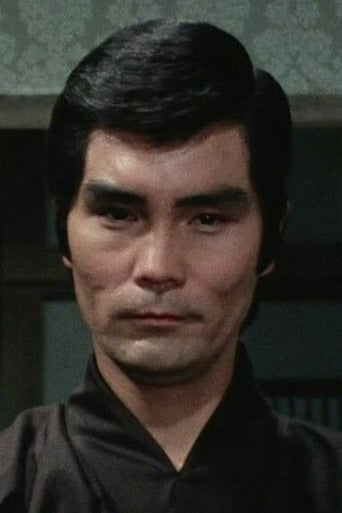christopher-underwood
Not a lot of joy in this one and my DVD seems to be made from video that doesn't work too well in the dark. This is supposedly set on the eve of a new law outlawing prostitution but you would not know it and I had purposefully arranged to watch it the night after, Kenji Mizoguchi's 'Street of Shame', aka: 'Akasen Chitai' which is very much based on the days before. So perhaps my slight disappointment with this film is the inevitable comparison. Nevertheless this is colourful and quirky with drawings, text on screen and songs, but mostly sex and most of that rather awkward and difficult. Much emphasis on the loutish men and how they can't, 'do it right'. Some uncomfortable moments, such as the virgin being broken in wincingly by, I assume, the main man of the brothel, although I don't recall seeing him before and he certainly wasn't the one who recommended the girls they squat over the fire before a client.
GyatsoLa
When you watch a movie like this, its difficult to look at it with a completely unbiased eye, knowing its a 'roman porno' movie - a genre invented by the Nikkatsu studio in the late 60's in a desperate attempt to keep up with the low budget 'pinku' movies that were about the only thing making money in the cinemas at the time. The idea was that they would be as explicit as soft porn, but would have a little more respectability by using more professional film makers and more literate sources. But in the fine tradition of Japanese exploitation, there were plenty of genuinely high quality directors who took advantage of this to make some top class movies, that would undoubtedly have been acclaimed at regular festivals if they hadn't been tainted by the genre.This movie is I think a classic example (I haven't seen any other Nikkitsu movies so I can't claim an overview). Kumashiro was one of the best directors of the genre and it shows. To their credit, Nikkatsu gave its directors something of a free hand, and Kumashiro, while adhering to the requirement of lots of sex, made a very fine movie, an elegy to a dying way of life that never patronizes or romanticizes its subjects.There are many similarities between 'Street of Joy' and some of the more acclaimed movies of the 1950's. One that comes to mind is Naruse's fine 'Flowing', about the last days of a Geisha house. It has the same sense of being an elegy for a lost time, while still maintaining a clear-eyed view that life wasn't all that great. Unlike 'Flowing' this movie is set in an out and out brothel - the film covers the last day, before their licenses are withdrawn and made illegal. The licensed brothels existed in a sort of twilight half way house between the semi-respectable Geisha Houses, and the totally unacceptable street girls and unlicensed whorehouses.These movies were apparently made on a very tight budget, but you would never guess it from the very high quality of the film making on show. The cinematography is very beautiful with many flowing camera moves, always to great effect. The interior shots are tightly framed, making it look like we are peeking through a half open door. The editing and technical qualities are as good as any movie of the period.But what makes this a particularly good movie is the simple humanity of the characters. The script and direction focuses almost entirely on the prostitutes - never judging them, showing a small slice of their lives, but also cleverly showing us so much more by good editing and subtle flashbacks (flashbacks normally annoy me, but they work exceptionally well here). The prostitutes include Shimako, hopelessly in love with a drug addicted Yakusa gangster, who may or may not be cheating on her (but is certainly ruining her life). Kimiko, who seems to have had a happy ending, escaping the brothel for marriage with a poor but decent man.... but she belatedly finds out that while he may be decent, but he's also terribly boring and sexually inept. Sad, attention seeking Shigeko just seems stuck in a life she doesn't know how to leave. And there is the tough and determined Naoki, obsessed with breaking the brothel record for 'tricks', for no clear reason other than sheer competitiveness.The acting is top class, especially from Nahomi Oka as Naoki, Junko Miyashito as Shimoko and Keizo Kanie, as the hardened Yakusa gangster. Its thanks to them that the movie has a tough naturalism, a humane look at people at the bottom of the heap, but with as many hopes (just fewer illusions) as those more fortunate.I can't help thinking that if this had been made by an independent minded film maker like Oshima it would have been critically acclaimed, rather than largely ignored by the more respectable critics (Kumashiro is hardly mentioned at all by Donald Richie in his last book on Japanese Film), which i have to attribute to the genre labeling. While I haven't seen all of Oshima's movies, this movie is superior in every respect to those I've seen (including his very highly rated 'Gohatto'). I'm glad that its been released on DVD for fans of Japanese film to come to their own conclusions. For me, its one of the finest 1970's Japanese movies I've seen.




